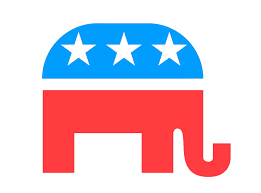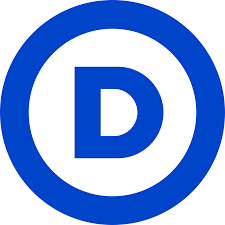Political Systems p. 2 POLITICS IN AMERICA
conservative :: traditional values, government assists the people less
liberal :: progressive values, government assists the people more
@@political platform :: a list of values and actions supported by the political party or individual candidate, done in order to appeal to the general public, which garners public support and votes, always about complicated topics or issues@@
levels of “leftness” :: liberal, socialism, communism (equality in society)
levels of “rightness” :: conservative, authoritarianism, fascism (control of society)
Conservative ideologies in America- 
- a large government poses a threat to individual liberty
- national government should be a small as possible
- since “New Deal”, federal government has taken on too much
- Free market
- Strong defense
- discretionary spending programs should be cut
- lower government spending and lower taxes
- supports traditional values, sometimes rooted in religion
- anti-abortion, anti-marijuana
- values liberty
Liberal Ideologies in America- 
- policies grew out of the “New Deal”
- bigger government can help solve problems
- supports government intervention in the economy to benefit historically marginalized groups
- government should protect the environment
- country spends too much on military
- values equality
- pro-abortion, pro-marijuana
the New Deal :: a series of programs and projects instituted by FDR in the Great Depression to restore prosperity to USA by boosting the economy, and providing jobs and relief to the people
political socialization :: the process by which citizens establish their political ideology
agents that contribute to our political socialization :: family, social groups, economic self-interest, gender gap, higher education, and political views in adolescence
family :: kids either want to emulate their parents or reject their ideas, parents are the first people to express political opinion to children
social groups :: race, gender, religion, ethnicity, white Catholics generally conservative, African Americans and Jews liberal, Latinos, although Catholic, still liberal
economic self-interest :: prime-determiner, explains why rich white voters vote REP because lower taxes, although there are a large number of low-income white voters who vote conservative, even though voting for liberals would benefit them financially
gender gap :: women are more liberal than men
higher education :: conservatives think USA public education leans left because teachers generally do, the higher education one obtains, the more likely they lean left
political views in adolescence and young adulthood :: whatever party was president at your early years of majority will influence whether or not you support that party for the rest of your life
blue collar :: trades, manual labor, lower salary
white collar :: office jobs, less manual labor, higher salary more education necessary
^^DNC^^ :: regained White house in 2020 but barely maintained House. 2022 was way better than expected, gubernatorial and senatorial gains, only loss of House. Has wide range, Euro style AOC and Cori Bush, mainstream Joe Biden and Gavin Newsom, pragmatic centrists Josh Gottheimer and Mark Warner, and GOP-lite blue dog Joe Manchin
==RNC== :: lost presidency and senate 2020, but made gains in House. Performed poorly in 2022, lost in senate and governors but gained House. Before Trump there were establishment conservatives, Mitch Mcconnell and Mitt Romney, religious, Mike Pence and Josh Hawley, Libertarians, Rand Paul and Thomas Massie, Reaganists, Susan Collins, firebrand, Ron DeSantis, Ted Cruz, House Freedom Caucus (QAnon), Marjorie Taylor Greene. Trump made many candidates change their views to match his though.
%%Green Party%% :: support strict environmental protection laws, labor rights, expanded social programs, and higher taxes on wealthy and corporations. The first presidential candidate for the Greens was Ralph Nader in 1996, but notably, he raised millions of dollars in 2000 and he siphoned votes away form Gore and made Bush Win. In 2020, Howie Hawkins, party co-founder, rain for president and placed 4th with 0.3% of the vote.
@@Libertarians@@ :: neither left nor right, they believe in total individual liberty, means pro-homeschooling, pro-drug legalization, pro-gun rights, pro-abortion, and total economic freedom. Anti-welfare, anti-minimum wage, anti-income tax. More freedom, less taxes and government. in 2020, Jo Jorgenson finished third for the presidency with 1.2% of votes, and this party has affiliate parties in every state.
Smaller third parties :: alliance party, independent party, workers party USA, American independent party, socialist party, democratic socialists of america, communist party USA, US pacifist party, canary party.